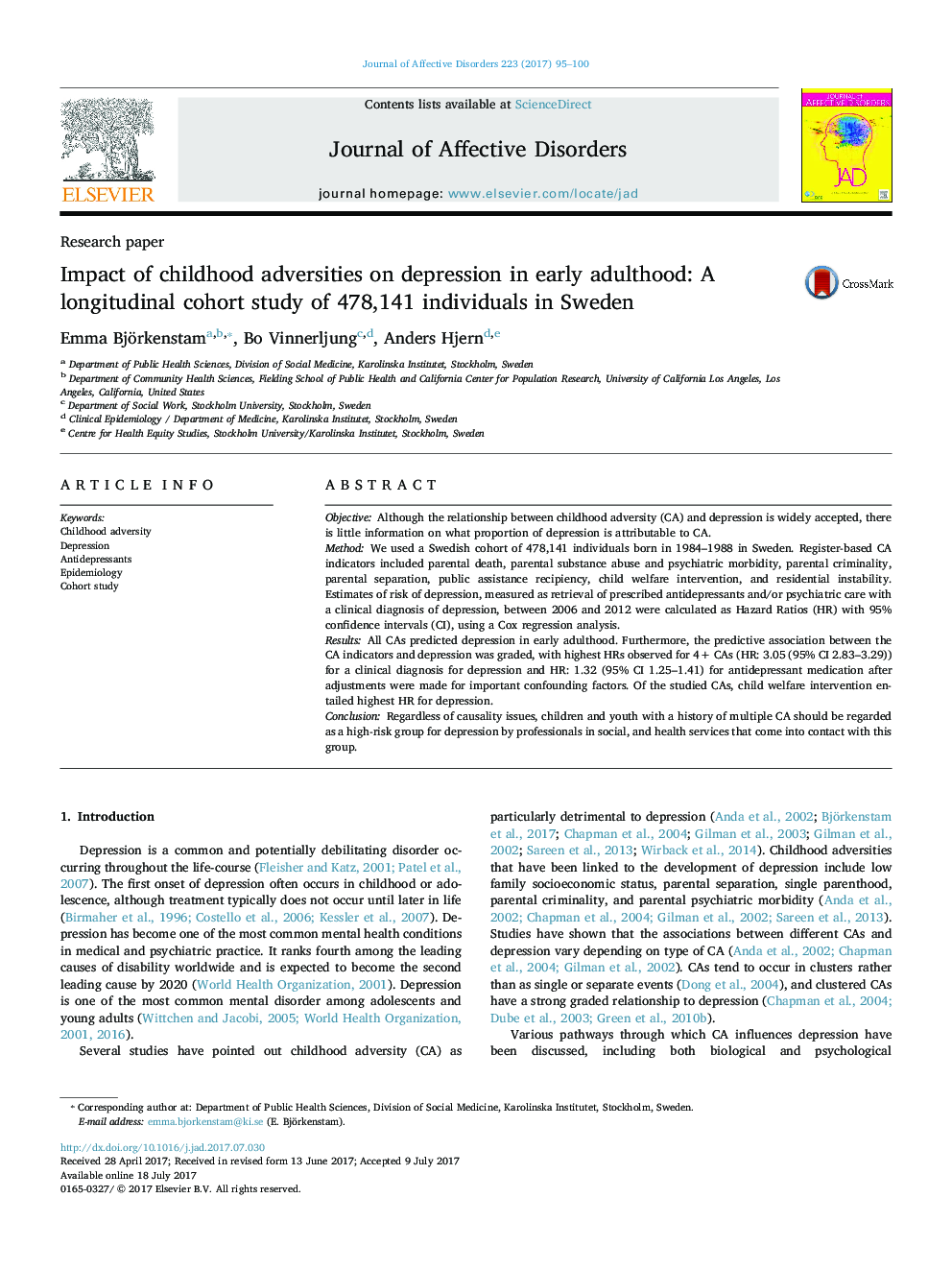| کد مقاله | کد نشریه | سال انتشار | مقاله انگلیسی | نسخه تمام متن |
|---|---|---|---|---|
| 5721797 | 1608102 | 2017 | 6 صفحه PDF | دانلود رایگان |
- Cumulative childhood adversity is associated with early adulthood depression, in terms of a clinical diagnosis and antidepressant medication.
- Child welfare intervention and parental psychiatric disorder are particularly associated with depression.
- Estimated Population Attributable Fractions revealed that 13% of clinically diagnosed depression was attributable to parental separation.
ObjectiveAlthough the relationship between childhood adversity (CA) and depression is widely accepted, there is little information on what proportion of depression is attributable to CA.MethodWe used a Swedish cohort of 478,141 individuals born in 1984-1988 in Sweden. Register-based CA indicators included parental death, parental substance abuse and psychiatric morbidity, parental criminality, parental separation, public assistance recipiency, child welfare intervention, and residential instability. Estimates of risk of depression, measured as retrieval of prescribed antidepressants and/or psychiatric care with a clinical diagnosis of depression, between 2006 and 2012 were calculated as Hazard Ratios (HR) with 95% confidence intervals (CI), using a Cox regression analysis.ResultsAll CAs predicted depression in early adulthood. Furthermore, the predictive association between the CA indicators and depression was graded, with highest HRs observed for 4+ CAs (HR: 3.05 (95% CI 2.83-3.29)) for a clinical diagnosis for depression and HR: 1.32 (95% CI 1.25-1.41) for antidepressant medication after adjustments were made for important confounding factors. Of the studied CAs, child welfare intervention entailed highest HR for depression.ConclusionRegardless of causality issues, children and youth with a history of multiple CA should be regarded as a high-risk group for depression by professionals in social, and health services that come into contact with this group.
Journal: Journal of Affective Disorders - Volume 223, 1 December 2017, Pages 95-100
